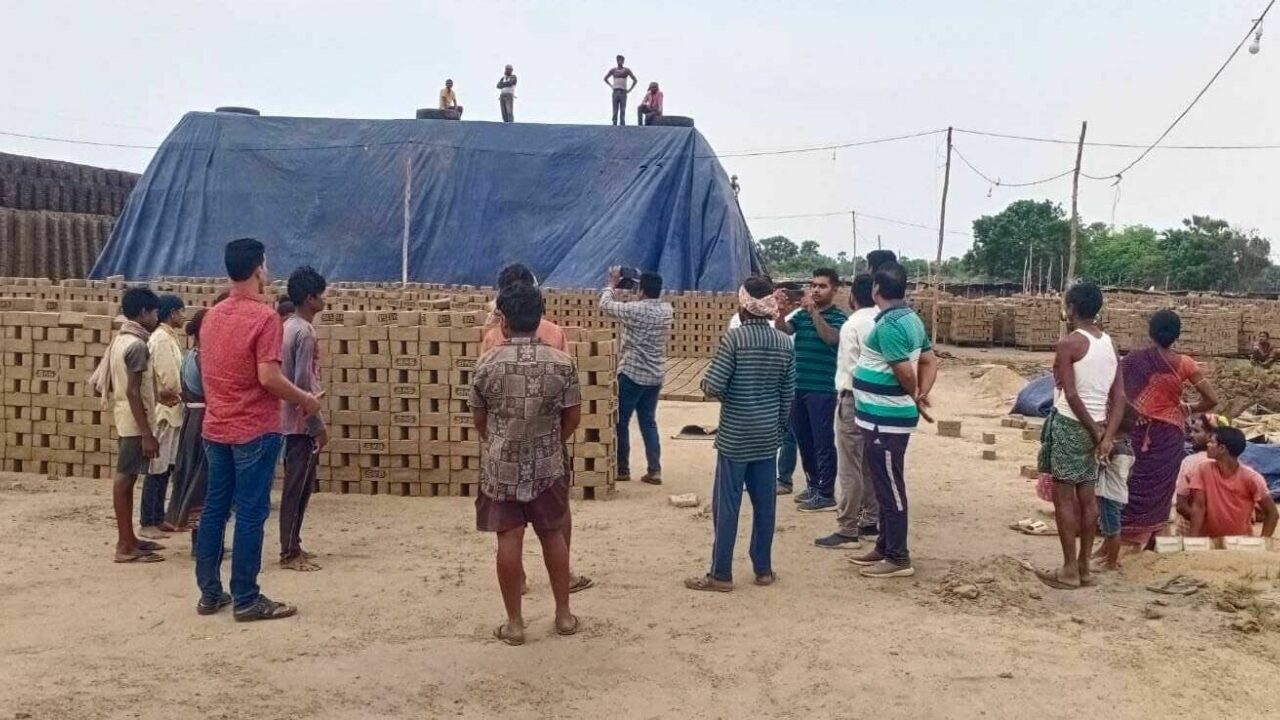Court Convicts Kiln Owner and Trafficker in Speedy Trial
Labor Trafficking
A surprise inspection by the Telangana Anti Human Trafficking Unit (AHTU) led to the rescue of 20 children from a brick kiln. The case took just ten months from rescue to sentencing—demonstrating the severity of the abuse and the commitment of local authorities to protecting vulnerable people.
The anti-trafficking police discovered how the children aged 12 to 17, alongside their parents and about 80 others, had been trafficked from the neighboring state of Odisha and forced to work in exploitative conditions at the brick kiln for the past eight months. The families had been lured with an advance payment of 45,000 rupees (US$540) and earned only 400 rupees (US$4.85) weekly. Their earnings were less than the standard minimum wage prescribed by the state. All laborers were subjected to grueling work hours exceeding 15 hours daily. The owner prohibited the laborers from working elsewhere to pay down the debts he claimed they owed, trapping them in false bondage.
On May 26, 2023, IJM and our partner, the Foundation for Sustainable Development (FSD), supported the authorities in conducting a surprise inspection to rescue the victims. The timing of the inspection was planned strategically to catch the perpetrators off-guard. For the last few years, the state has run successful anti-child labor campaigns called Operation Smile and Operation Muskaan in January and June. However, some perpetrators are aware of these campaigns and have been evading detection. Running this surprise inspection allowed the AHTU to expose exploitation before it could be hidden away again.
As authorities arrived to bring the victims to safety and document their stories, they also arrested two suspects: the owner of the kiln and a recruiter who had trapped the families in this scheme.
Though these elements of bonded labor were present, the laborers were terrified to reveal the truth about the working conditions in the brick kiln on the day the AHTU arrived to help them. Officials focused on the 20 children who were trapped working in dangerous situations and brought them to safety at a government office.
The Child Welfare Committee assessed the situation and allowed the children to return home along with their parents. From there, the case moved relatively speedily through local courts until the judgment on March 16, 2024. Both of the accused were convicted under the India Penal Code for “unlawful compulsory labor” and required to pay a small fine, or else face one month in prison. In the past, similar cases have taken three or four years—or longer—to reach a judgment.
“This is one of the quickest convictions we have seen,” shares IJM’s State Program Director Abishek Joseph. “The whole proceedings, with conviction, came within 10 months. Though the quantum of punishment is less, we are happy to see that the legal mechanism is working efficiently in Telangana.”
Joseph added, “We will continue to advocate with the judiciary to increase the quantum of punishment for other cases that are on trial.”
Believing that this is only the beginning, another staff member from IJM said, “This incident has offered a broader perspective on the issue of bonded labor, and undoubtedly, (the officials’) capabilities will continue to grow in the days ahead.”
###
IJM has worked with local partners to combat forced labor in Telangana for nearly 10 years but just recently launched a state-wide program to help authorities strengthen their response. Cases like this one help identify challenges in law enforcement so we can collaborate with authorities to better protect victims and more effectively hold criminals accountable.